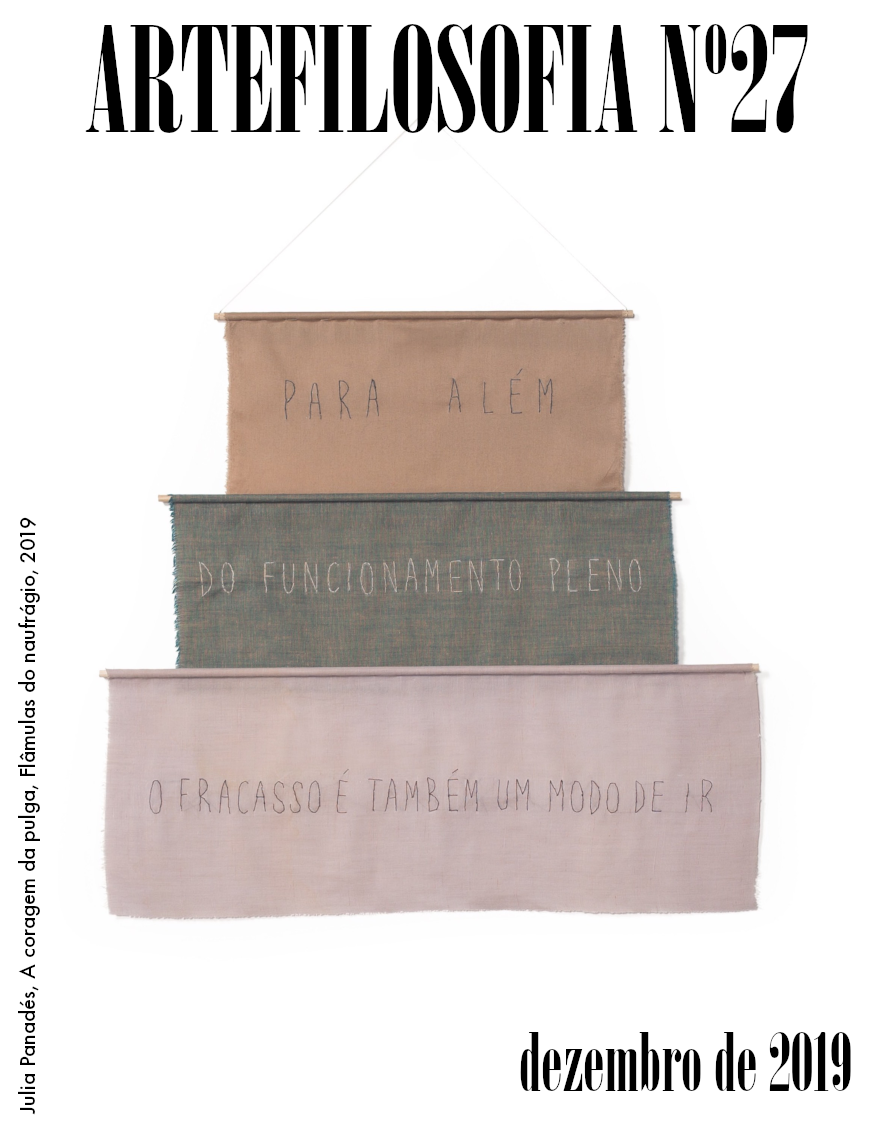The ideal of quote:
Lessing – Schlegel – Benjamin
Abstract
The writings of Gotthold Ephraim Lessing, Friedrich Schlegel and Walter Benjamin share an ideal of critique. In their attempt to rethink and reshape the figure of the critic as well as the act of criticism as such, all three were led to picture the transformation of that same ideal by referring to a number of fundamental concepts and disciplines that are said to incorporate the critical spirit as a particular gesture: philosophy, physics, anatomy, chemistry, or politics. Such an exercise in figuration is bound to play itself as a literal or physical prefiguration: just as Lessing became Schlegel’s model of the critic, so too was Schlegel himself at the root of Benjamin’s musings about the task and the technique of the critic. A large part of this mechanism of affinity and inheritance is put into motion by a concept that will prove central to Benjamin’s whole oeuvre: quotation. In many respects, the fate of Lessing’s and Schlegel’s ideal of critique is decided in Benjamin’s ideal of quotation.
Downloads
References
ADORNO, T. W. Über Walter Benjamin. Frankfurt am Main.: Suhrkamp, 1990.
ADORNO, T. W. Prismen. Kulturkritik und Gesellschaft. Frankfurt am Main: Suhrkamp, 1955.
ARENDT, H. “Walter Benjamin 1892-1940”. Walter Benjamin, Illuminations. Essays and Reflections. Nova Iorque: Schocken, 1969
BENJAMIN, W. O Anjo da História. Trad. João Barrento. Lisboa: Assírio & Alvim, 2010.
BENJAMIN, W. Gesammelte Schriften, Vol. I. Ed. Rolf Tiedemann, Hermann Schweppenhäuser, . Frankfurt am Main: Suhrkamp, 1974.
BENJAMIN, W. Gesammelte Schriften, Vol. II. Ed. Rolf Tiedemann, Hermann Schweppenhäuser. Frankfurt am Main: Suhrkamp, 1977.
BENJAMIN, W. Gesammelte Schriften, Vol. IV. Tillman Rexroth. Frankfurt am Main: Suhrkamp, 1972.
BENJAMIN, W. Gesammelte Schriften, Vol. V. Ed. Rold Tiedemann. Frankfurt am Main: Suhrkamp, 1982.
BENJAMIN, W. Gesammelte Schriften, Vol. VI. Ed. Rolf Tiedemann, Hermann Schweppenhäuser. Frankfurt am Mai: Suhrkamp, 1985.
BENJAMIN, W. O conceito de crítica de arte no Romantismo Alemão. Trad. Márcio Seligmann-Silva. São Paulo: Iluminuras, 1993.
EILAND, H.; JENNINGS, M. W. (Ed.). Walter Benjamin. A Critical Life. Cambridge, Massachusetts, Londres: Harvard University Press, 2014.
FÜRNKÄS, J. “Zitat und Zerstörung. Karl Kraus und Walter Benjamin”. Verabschiedung der (Post-) Moderne? – Eine interdisziplinäre Debatte. Tübingen: Gunter Narr Verlag, 1987.
LESSING, G. E. “Briefe Antiquarischen Inhalts”. In: Werke, vol. 6. Munique: A. Von Schirnding, 1970.
MENKE, B. “Das Nach-Leben im Zitat. Benjamins Gedächtnis der Texte”. Gedächtniskunst: Raum – Bild – Schrift. Studien zur Mnemotechnik. Frankfurt am Main: Suhrkamp, 1991.
MOLDER, M. F. “A paixão de colecionar em Walter Benjamin”. Semear na Neve. Estudos sobre Walter Benjamin. Lisboa: Relógio d’Água, 1999.
SCHLEGEL, F. Kritische Friedrich-Schlegel-Ausgabe, Vol. 2. Munique, Paderborn, Viena: Verlag Ferdinand Schöningh, 1967.
SCHLEGEL, F. Kritische Friedrich-Schlegel-Ausgabe, Vol. 3., Ed. Hans Eichner, Munique, – Paderborn, – Viena: Verlag Ferdinand Schöningh, 1975.
SCHLEGEL, F. Kritische Friedrich-Schlegel-Ausgabe, Vol. 16. Munique, Paderborn, Viena: Verlag Ferdinand Schöningh, 1981.
SCHLEGEL, F. Kritische Friedrich-Schlegel-Ausgabe, Vol. 18. Munique, Paderborn, Viena: Verlag Ferdinand Schöningh, 1963.
SCHLEGEL, F. Charakteristiken und Kritiken. Von August Wilhelm Schlegel und Friedrich Schlegel, Vol. 1. Königsberg: Friedrich Nicolovius, 1801.
SCHLEGEL, F. Da essência da crítica e outros textos. Trad. Bruno C. Duarte. Lisboa: Fundação Calouste Gulbenkian, 2015.
SCHULTE, C. 'Ursprung ist das Ziel’. Walter Benjamin über Karl Kraus. Würzburg: Königshausen & Neumann, 2003.
VOIGTS, M. “‘Die Mater der Gerechtigkeit’. Zur Kritik des Zitat-Begriffes bei Walter Benjamin”. Antike und Moderne. Zu Walter Benjamins Passagen. Würzburg: Königshausen & Neumann, 1986.
Copyright (c) 2019 Artefilosofia

This work is licensed under a Creative Commons Attribution-NonCommercial-ShareAlike 4.0 International License.
Autores que publicam nesta revista concordam com os seguintes termos:
- Autores/as mantém os direitos autorais e concedem à revista o direito de primeira publicação, com o trabalho simultaneamente licenciado sob a creativecommons.org/licenses/by-nc-sa/4.0/ que permite o compartilhamento do trabalho, com reconhecimento da autoria e publicação inicial nesta revista.
- Autores/as têm autorização para assumir contratos adicionais separadamente, para distribuição não-exclusiva da versão do trabalho publicada nesta revista (ex.: publicar em repositório institucional ou como capítulo de livro), com reconhecimento de autoria e publicação inicial nesta revista.


